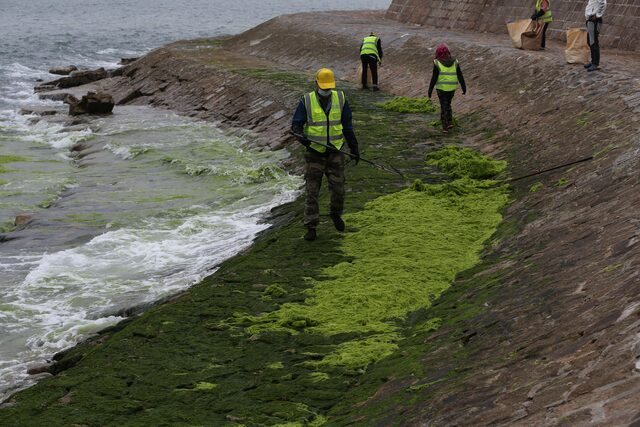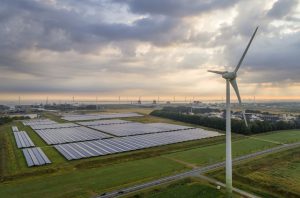Scientists from the United States and Italy have made an exciting discovery – a strain of cyanobacteria, otherwise known as algae, that grows rapidly in the presence of carbon dioxide and sinks in water, according to a report by the Wyss Institute at Harvard University in Boston.
Those two characteristics have seen the novel algae strain – nicknamed “Chonkus” and found near volcanic ocean vents off an island near Sicily – hailed as “a prime candidate for biologically-based carbon sequestration projects” and “sinking large volumes of carbon to the ocean floor,” a report posted on the research institute’s website on Tuesday (October 29) said.
“This naturally occurring strain of cyanobacteria has several traits that could be useful to humans, including highly dense growth and a natural tendency to sink in water, making Chonkus a particularly interesting organism for future work on decarbonization and biomanufacturing,” Wyss Institute scientist Max Schubert PhD was quoted as saying.
ALSO SEE: Satellite Finds Methane, CO2 Plumes Over Sites in Asia, Africa, US
A research team, with colleagues Braden Tierney and Professor George Church, discovered that ‘Chonkus’ produced larger colonies than other fast-growing cyanobacteria strains and that its large cells “appeared to harbour carbon-containing storage granules.”
“The fact that cyanobacteria directly harvest carbon from their environment to grow means that they can couple the processes of carbon sequestration and bio-manufacturing together in a single organism,” the report said.
‘Potential to sink large volumes of carbon to the ocean floor’
“The traits inherent in the naturally evolved cyanobacteria strains described in this research have the potential to be used both in industry and the environment, including biomanufacturing of useful carbon-based products or sinking large volumes of carbon to the ocean floor,” Church said.
“While further modifications could be made to enhance these microbes’ abilities, harnessing billions of years of evolution is a significant leg up in humanity’s urgent need to mitigate and reverse climate change,” he said.
Tierney said: “Many of the traits that we observed in Chonkus aren’t inherently useful in their natural environment, but are very useful to humans. Aquatic organisms naturally grow at very low density, but being able to grow to a high density at higher temperatures is very helpful in the industrial environments that we use to manufacture many goods and products, and can help sequester more carbon.
“An incredible amount of microbial diversity exists out there in the world, and we believe it’s more efficient to seek out the microbes that have already evolved to succeed in human-relevant environments rather than trying to engineer all of the traits we want into lab-grown E coli bacteria.”
The team noted that many organizations are investigating the use of fast-growing organisms for carbon sequestration and said “Chonkus could one day join their ranks.”
Scientists in China have also been exploring ways to increase the capacity of its coastal waters to be a “carbon sink”, as part of its pledge to reduce greenhouse gases to net zero by 2060, and enhance climate resilience in its marine ecological system.
But given growing pressure on land use, and policymakers wanting to maximise the available space for forest, nature reserves as well as arable land, the country is looking to take advantage of its vast territorial waters to boost its “blue sink” potential, Reuters noted in a report in 2021.
Perhaps scientists in China – and other countries – should have a look at Chonkus, as the US researchers appear to have opened the door for international cooperation.
The Wyss Institute report said samples of the algae strain are “cryopreserved and publicly available for other researchers to use from the Culture Collection of Algae at the University of Texas, Austin.”
- Jim Pollard
ALSO SEE:
Funding Gap Hurts Climate Talks While World Faces 3.1C Warming
Climate Change Has Cost China $32 Billion in Just One Quarter
Scientists Fear Nature’s Carbon Sinks Are Failing – Guardian
Floods or Drought: Climate Change Worsens Global Water Woes
Climate Change ‘Fuelled’ Rain That Led to Fatal Indian Landslides
Energy Emissions Set to Peak But ‘Not in Time’ For Climate Goals
LNG’s Carbon Footprint 33% Bigger Than Coal’s – CC
























